Montenvers : Past, present and future
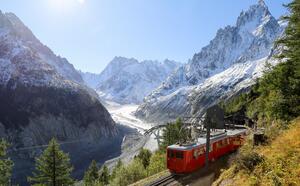
In August 1908, when the inhabitants of the Chamonix valley saw the first steam train set off for Montenvers in August 1908, they had possibly forgotten 15 years earlier, this project had been strongly rejected by the population and the Municipal Council.
At the time, in addition to farming, accompanying tourists to Montenvers by mule was a thriving activity which contributed considerably to the livelihood of 650 families, whose members worked as guides and mule-drivers.
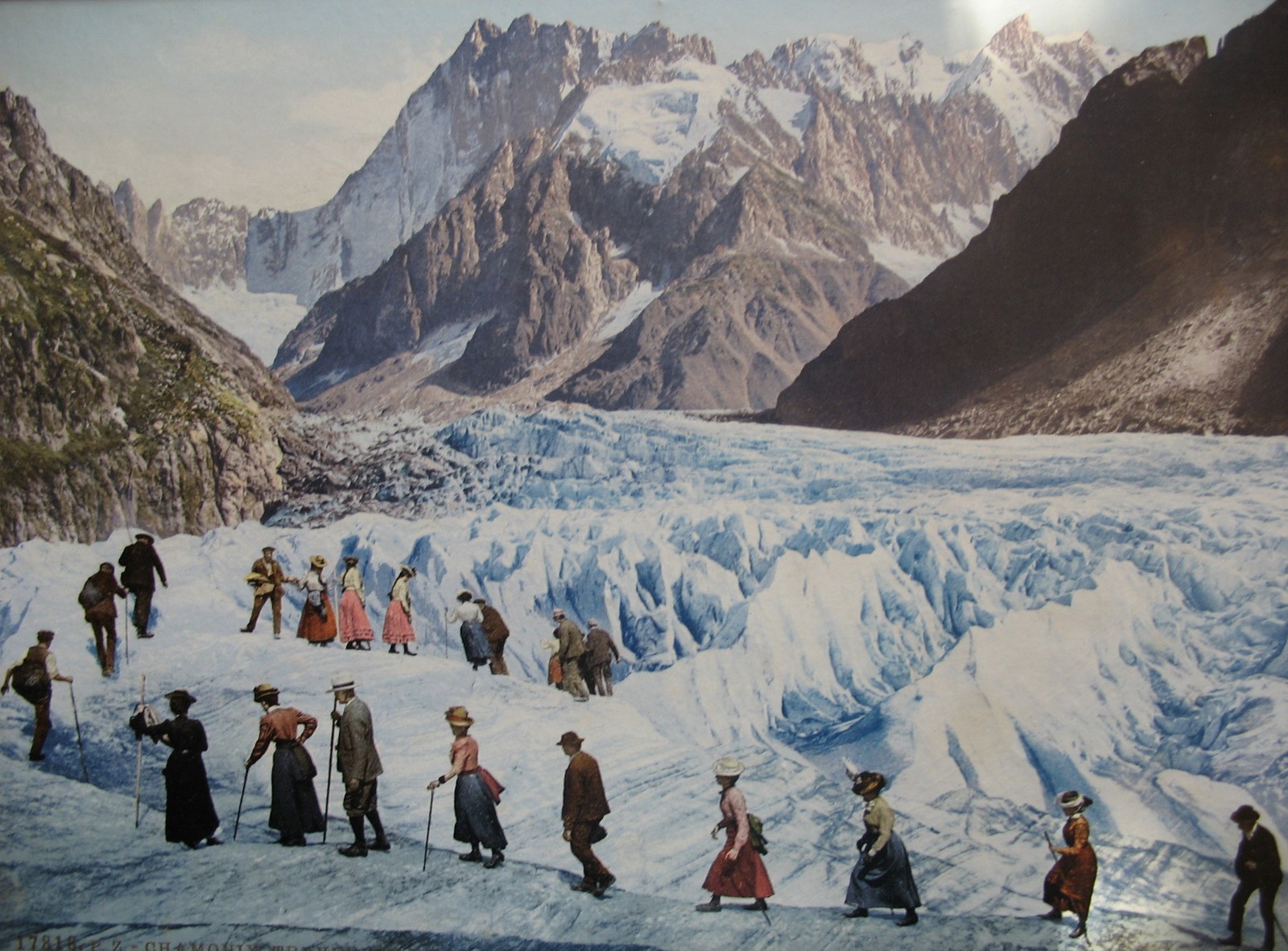
Despite strong protests, the General Council endorsed the project of a 5 km rack and pinion railway line which would reach an altitude of 1913m to a remarkable viewpoint overlooking the Mer de Glace glacier.
The Montenvers station was built close to the PLM station (Paris Lyon Marseille), whose railway line had been transporting tourists to Chamonix since 1901.
The highly ambitious construction work began in 1906, with 250 men labouring in extremely difficult conditions. Amongst them were many masons from the Piedmont in Italy, who were renowned for their expertise in hewing granite stone.
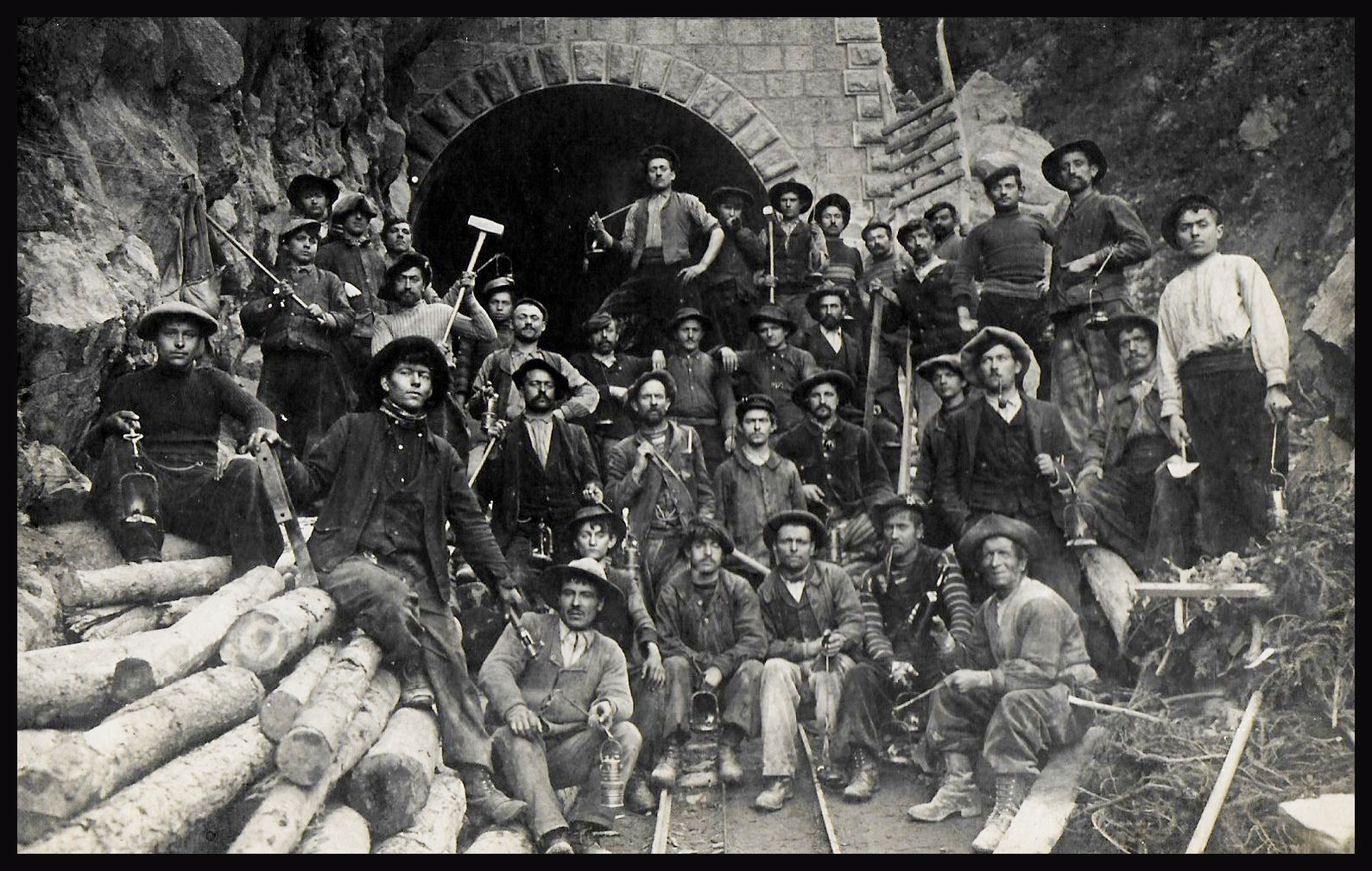
On August 9th 1908, le train dropped off its first passengers on a provisional platform, "Twenty minutes from the Hotel du Montenvers, which is easily reached by a good path. The wonderful spectacle enjoyed on the terrace of the hotel is thus within the reach of the less ingambient people and the Sea of Ice becomes, from now on, the most easily accessible glacier ". In 1909, the train finally reaches the Montenvers terminal.
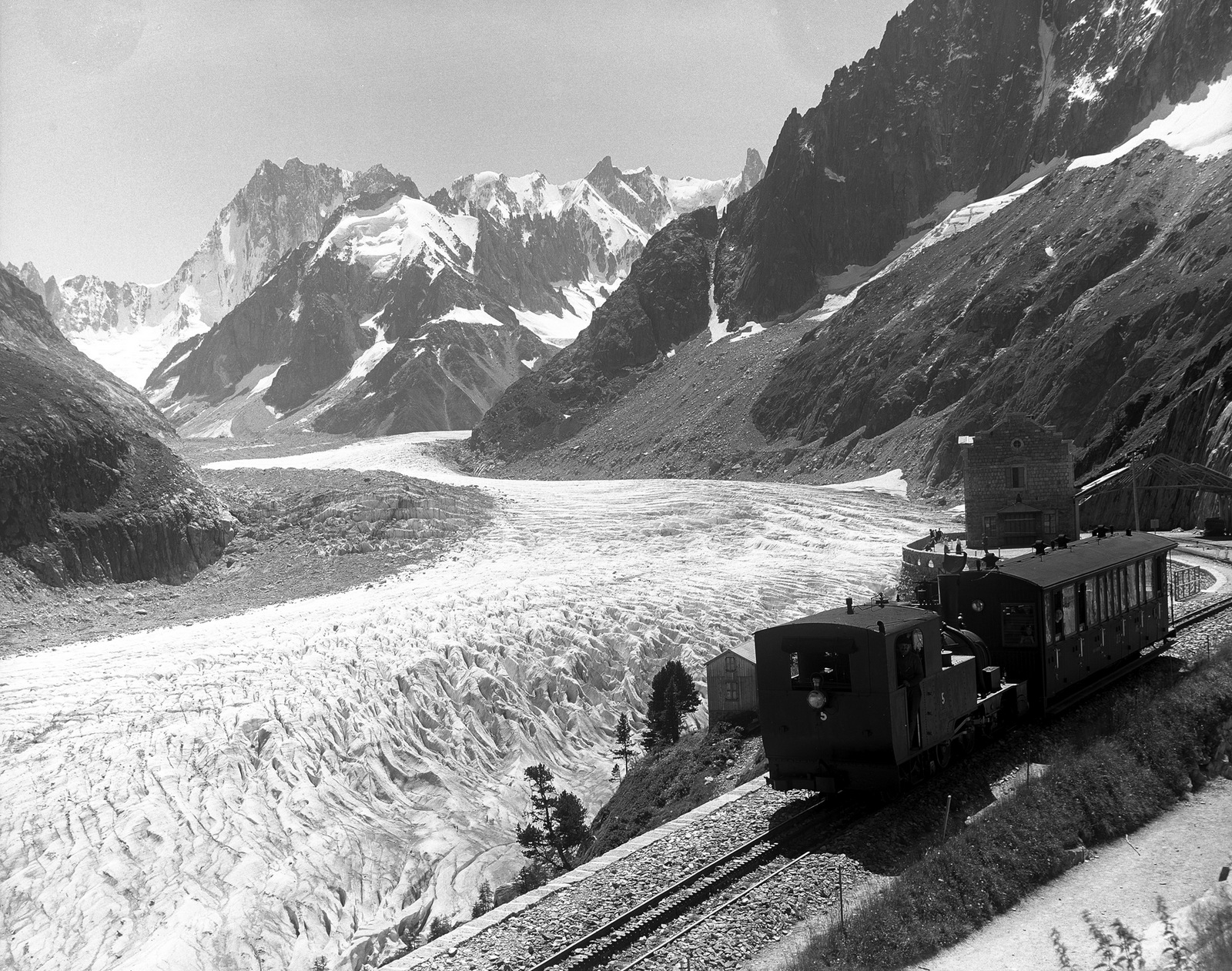
In 1946, George Claret excavated a cave in the flank of the glacier, thus enabling visitors to explore the interior of the Mer de Glace.
The steam locomotives were replaced by electric motors in 1954, a first for a cog railway. In 1962, diesel engines replaced them definitively.
By 1988, the level of the Mer de Glace had fallen significantly and a cable car was built to facilitate access to the glacier. In 1993, and after major security work, the Montenvers line began operating in winter.
Today, the level of the Mer de Glace is comparable with that of the Middle Ages, before the last Little Ice Age. Throughout the summer, glaciologists take turns on the Montenvers site to explain the history and evolution of the largest glacier in France.
The receding Mer de Glace has become a symbol of the impact of global warming, which is twice as significant and far more tangible in our Alpine regions. Over the past 140 years the glacier has retreated two kilometres and has lost 220m in depth (measurement taken beneath the Montenvers station). More poignant is the fact that it has lost 100m depth in the last thirty years. From the gondola base station, one must currently negotiate 550 steps in order to reach the glacier.
A NEW PROJECT FOR MONTENVERS
The Compagnie du Mont-Blanc lift operator and the Collectivity have worked on a reconfiguration of this emblematic site, in conformity with the project strategy defined by AdaPT Mont-Blanc (environmental territorial planning and development for the Mont-Blanc cross-border region). The Montenvers development project involves building a new gondola further up-glacier as well as the creation of an international glacier and climate interpretation centre for a previsional budget of 53 million euros.
The gondola will be operational in December 2023 and the Glacier interpretation centre in December 2024. The Architects are Fabre-Speller et Tempora, the same agency that managed the Grotte Chauvet project.
“We want to make this glacier and climate interpretation centre a world reference. The Montenvers welcomes over 1 million visitors per year, and our aim is to inform them, in a fun way, about everyday actions and the role we can all play in preserving this environment”. Matthieu Dechavanne, CEO Compagnie du Mont-Blanc
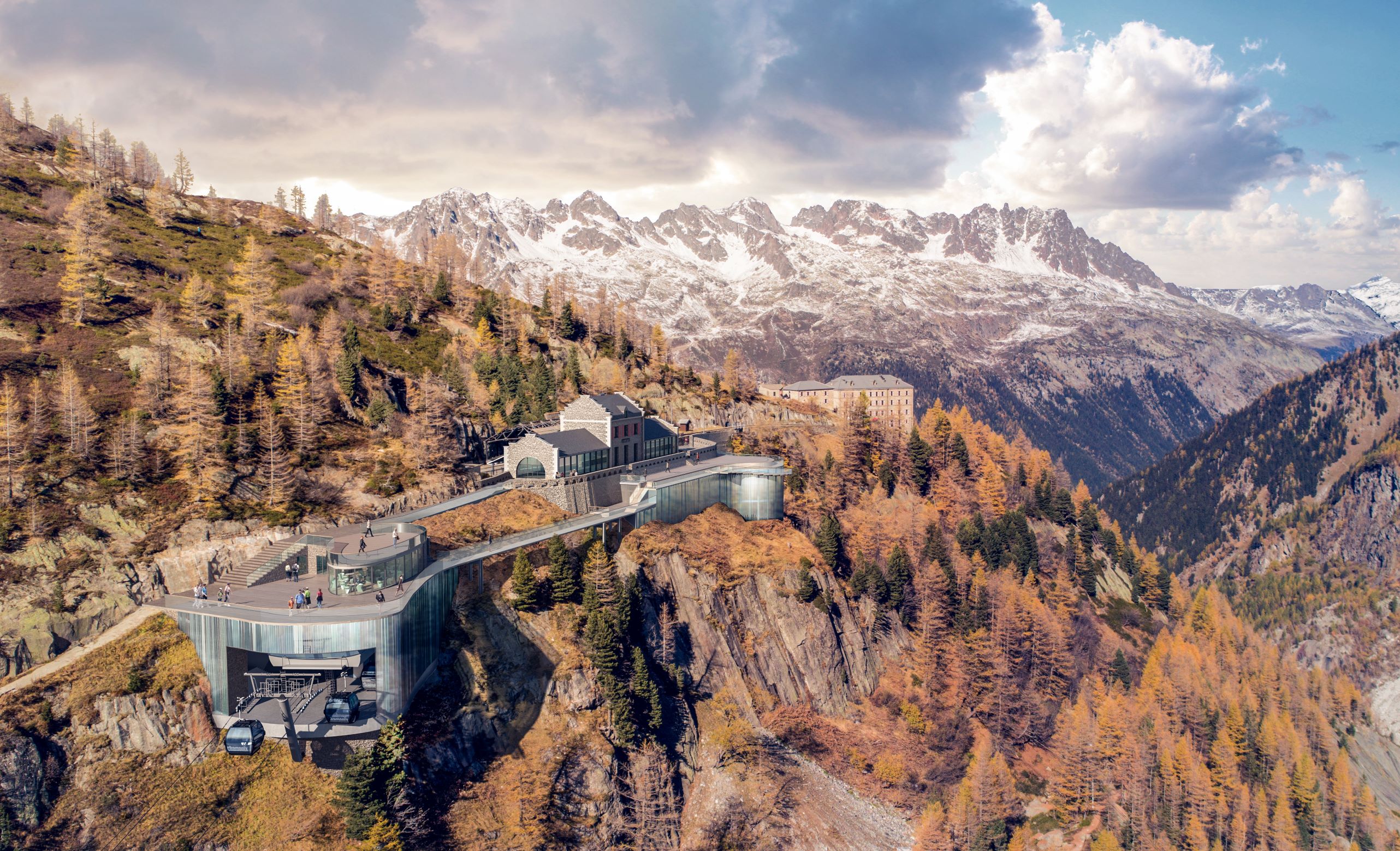
https://www.montblancnaturalresort.com/fr/